Personalized or precision medicine, is it already here, are we ready for it?
Such a widely used term nowadays! Whereas classic medicine is based on a one-size-fits-all model of care and population based, personalized medicine aims to be predictive, preventive, and patient centric overall. However, it often needs to include pharmacogenetics markers in testing panels.
- Pharmacogenetics or pharmacogenomics?
- The enzymes or genes often studied in Pharmacogenetics are those involved in drug metabolism
- The importance of CYP2D6 in psychiatry
- So, how can MassArray (former Sequenom) system help in Pharmacogenetics?
Pharmacogenetics or pharmacogenomics?
Both terms are often inter-changed: while pharmacogenetics is the study of drug response in relation to genetic variation in specific candidate genes, pharmacogenomics focus on the drug response in relation to genetic variation in the entire genome. Looks similar but it’s not.
The real advance is to be able to treat people with the same diagnosis with different drugs based on some genetic testing. There are some drugs already in the market targeting specific biomarkers.
When talking about factors contributing to interindividual variability in drug disposition, action and response, not only genetics has to be taken into account: other factors such as age, ethnicity, weight, gender, concomitant diseases or diet need to be considered.
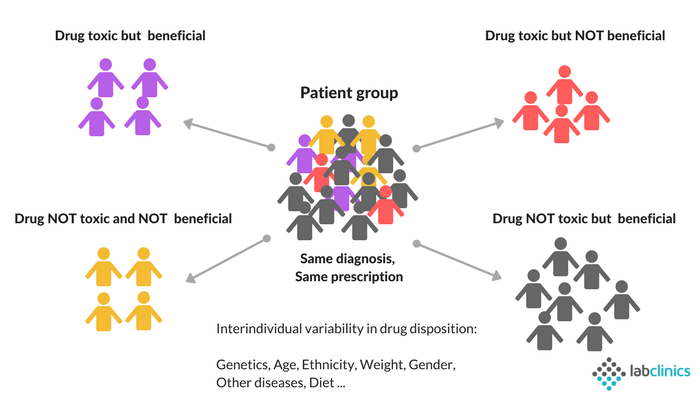
The enzymes or genes often studied in Pharmacogenetics are those involved in drug metabolism
These genes belong to the Cytochrome P450 enzymes, superfamily of homoproteins that catalyze hydroxylation and other metabolic reactions. There are more than 60 different CYP450 genes and pseudogenes
Some of the first genes included in PGx testing were CYP2C19/CYP2D6, why? Almost 40% of drug metabolism is carried out by CYP2C9, CYP2C19 and CYP2D6.
The importance of CYP2D6 in psychiatry
CYP2D6 metabolizes around 20-25% of all medications in psychiatry. These include antidepressants, antipsychotics, opiates, tamoxifen and others. Drug effects vary among individuals and between etnic populations due to variable pharmacogenetic allele frequencies. One example of this drug interaction is the response to warfarin, a drug used in cardiopaties.
More and more laboratories are implementing pharmacogenetics as analytical validation. There are many guidelines available intended to unify and help for test result reporting.
So, how can MassArray (former Sequenom) system help in Pharmacogenetics?
Agena Bioscience provides a cost-effective solution for pharmacogenetic (PGx) testing with a laboratory-friendly workflow. You only need minimal input DNA to start: 5-10 ng from many sample types (blood, buccal swab). You can multiplex 25-30 assays per well, including SNPs, indels and CNV. Importantly, tri-allelic SNPs requires only ONE reaction.
It is a worldwide used platform thanks to the complete and custom panels to help every kind of lab do the genotyping they need.
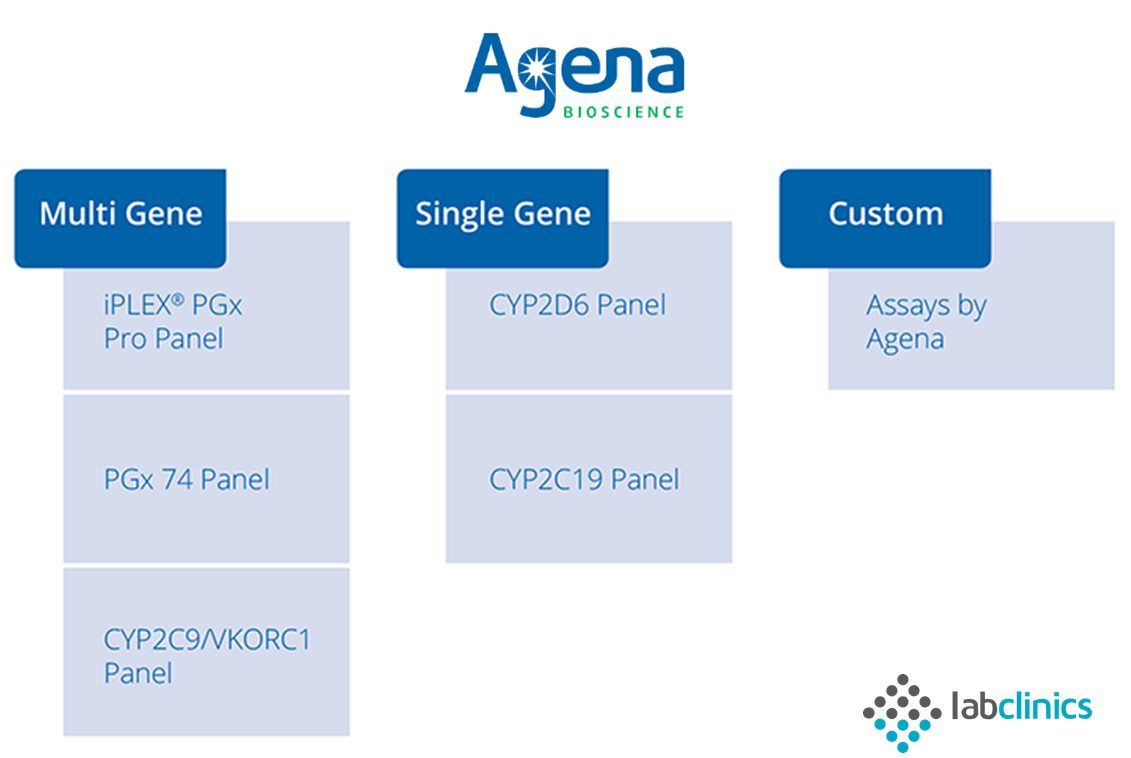
The available panels are the following:
iPLEX® PGx Pro Panel
Covers 99% of the most relevant pharmacogenetic markers considered to be broadly applicable to clinical trials.
Interrogates 191 SNPs in 36 key genes, including CYP2C9, CYP2C19, CYP2D6, and UGT1A1.
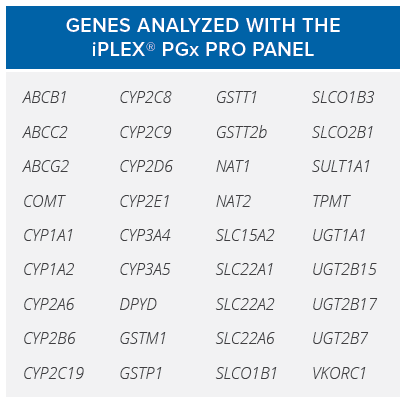
iPLEX® PGx 74 Panel
Targets the most relevant variants in 20 principal genes implicated in drug metabolism pathways.
Interrogates 69 SNPs/INDELs, plus 5 CNVs.
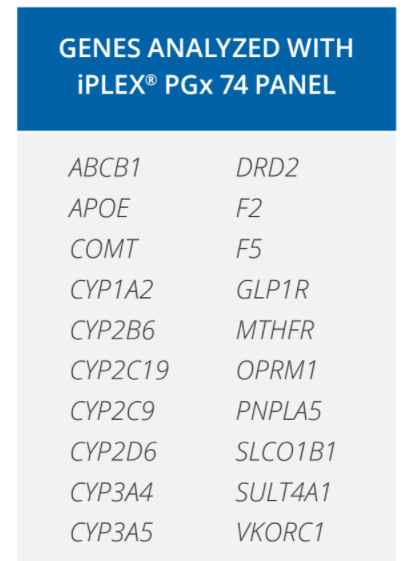
iPLEX CYP2C9 / VKORC1 Panel
Obtain biologically-relevant data for most of the known haplotypes of each gene.
Interrogates 38 SNPs in CYP2C9 and 11 SNPs in VKORC1.
iPLEX CYP2C19 Panel
Investigate and confirm pharmacogenetic biomarkers in CYP2C19.
The panel contains assays for 31 SNPs, covering most of the known CYP2C19 haplotypes.
iPLEX CYP2D6 Panel
The CYP2D6 Panel is a set of 30 SNP and 5 CNV assays, covering most of the known CYP2D6 haplotypes.
A proven solution for Pharmacogenetics
The MassARRAY System has been the technology of choice for a number of pharmacogenetics studies with published papers.
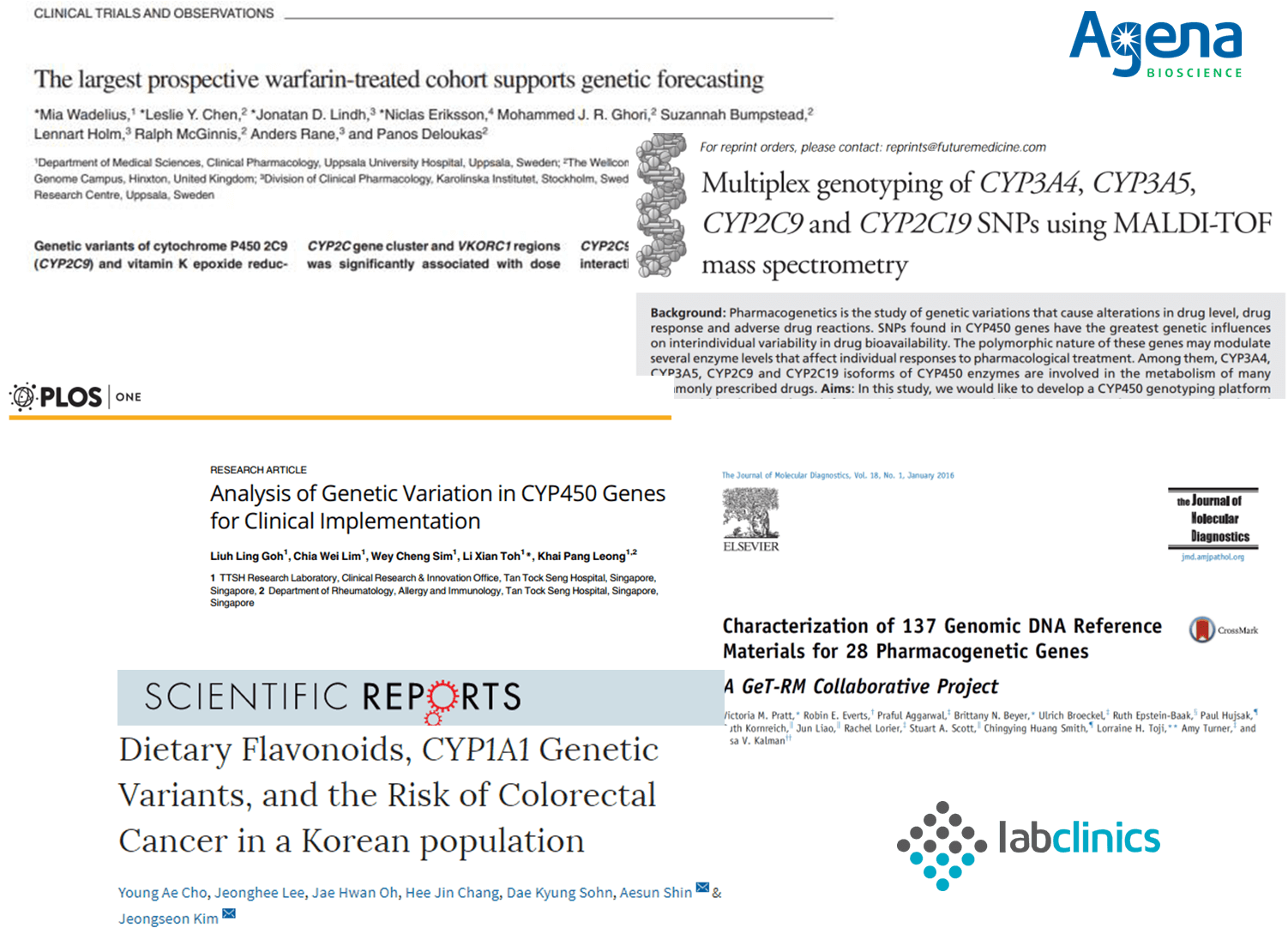
ANY QUESTIONS?
If you have some questions about how this technology works, or need any help to set up your assay, our experienced Tech Support Team (all are PhD) will be happy to help you by mail (tecnic@labclinics.com), phone (+34.934464700) or we can visit you. Let’s talk!
More info about MassARRAY technology in the following video:
https://vimeo.com/187048996





Leave a reply